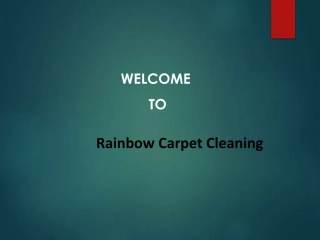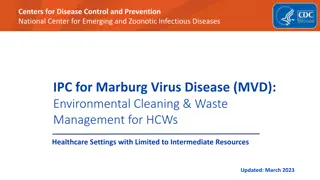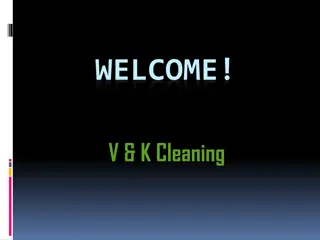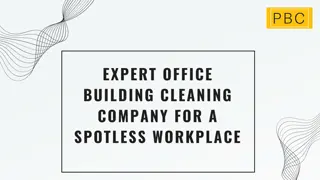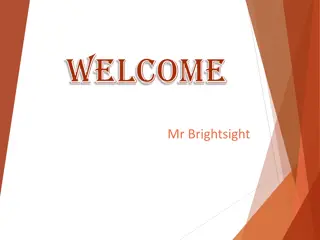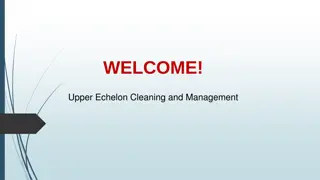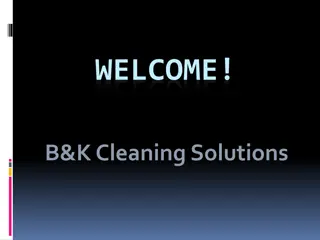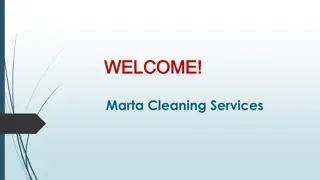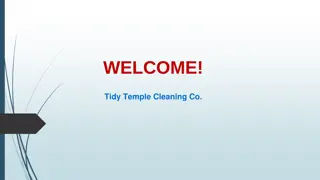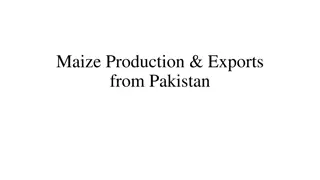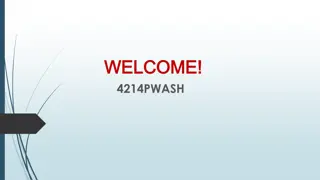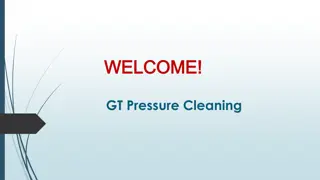
Rewarding Journey for a Cleaner and Greener Pakistan
Explore the initiatives for a cleaner and greener Pakistan through incentivizing positive environmental actions, waste management, and citizen involvement. Learn about waste disposal challenges, awareness campaigns, waste segregation practices, and the importance of education in sustainable development efforts. Join the movement towards a sustainable future in Pakistan.
Download Presentation

Please find below an Image/Link to download the presentation.
The content on the website is provided AS IS for your information and personal use only. It may not be sold, licensed, or shared on other websites without obtaining consent from the author. If you encounter any issues during the download, it is possible that the publisher has removed the file from their server.
You are allowed to download the files provided on this website for personal or commercial use, subject to the condition that they are used lawfully. All files are the property of their respective owners.
The content on the website is provided AS IS for your information and personal use only. It may not be sold, licensed, or shared on other websites without obtaining consent from the author.
E N D
Presentation Transcript
Cleaner and Greener Pakistan: A Rewarding Journey for All
Introduction: Pakistan, a nation blessed with natural beauty, cultural heritage, and resilient people, stands at a crucial juncture in its quest for sustainable development. As we strive for a cleaner and greener future, it is essential to engage every single individual in this transformative journey. In this article, we explore the concept of incentivizing positive environmental actions and propose a system where every citizen play its role and receives royalties in the form of rewards such as discount codes, mobile top-ups, tax relaxation and gasoline point, royalties for contributing their role to make waste management system in the flow.
Following are the common points to overcome the hurdles being in the way of becoming a clean and green Pakistan. Raising awareness and education. Waste management. Tree plantation and urban green spaces. Eco-friendly transportation. Urban Water filtration. Renewable energy production.
Here, we have focused on the main problem facing by the citizens of Pakistan is Waste Management Disposal . Did you know? Pakistan produces over 49.6 million tons of solid garbage yearly and 2.4% is rising annually every year which lead to serious complications for Pakistan and environmental crisis. Moreover, if talk about the biggest city of Pakistan Karachi . According to the (ITA) it have a population of 20,500,000 which produces produce 16,500 tons of only solid waste every day. Specially in Sindh, there is a govt. department Sindh Solid Waste Management Board (SSWMB) which trying it s best to overcome this big issue but still lacks the proper order and most off all important Public-Share and concern to overcome this waste management issue. Cleaning and Greening Pakistan: A comprehensive Waste Management Approach Here, let s illustrating the procedure of waste management in Pakistan.
1. Raising Awareness and Education. The first step in making Pakistan cleaner and greener is to inform and raise awareness among its people. People can be made aware of the value of environmental preservation by launching nation-wide campaigns and educational programs. The government, NGOs, and local communities can collaborate to organize workshops, seminars, and awareness drives for youth specially to highlighting the benefits of a clean environment and sustainable practices.
2. Waste Segregation. Efficient waste management is a key component of a clean and green Pakistan. The 2nd approach to convince every citizen to segregate waste from their homes, offices and communities to make it easier to dispose and recycle. Encouraging citizens to adopt waste segregation practices and promoting recycling initiatives can significantly reduce the volume of waste generated but question arise, at How this happen or why every citizen can do that? We have to take some steps to motivate them for this cause, so citizens can be rewarded for their active participation in waste management through Royalties-Points which in turn give discount codes on brands, mobile top-ups, and discount on gasoline station by reaching to certain points.
3. Collection and processed point. Public collection points must be made to ensure the easy and convenient strategy for people, vendors and waste dumping organizations to dump waste at their assign place where the further methods of waste management can be taken as follow. Collection: Waste is collected from homes, businesses, and other sources. This can be done by a variety of methods, including curbside collection, drop-off centers, and recycling bins. Sorting: The collected waste is sorted into different categories, such as recyclables, compostable waste, and hazardous waste. This is done to ensure that the waste is properly disposed of to their proper place and avoiding the irrelevant duping point or spoiling the beautification our cities which is a great problem.
4.Cash-out to Industries and firms: After sorting the waste. We have option to sell this clear sorted waste into a valuable cash and revenues that govt. can generate by selling it their concerned industries and firms while industries and firms would like to buy this stuff and waste because of sorted waste and free from any mixing of other. Here we can see as, Composting: Food and kitchen stuff give to at local level nurseries to make organic compost and also give to a fertilizer making industries to make organic compost and avoid Nitrogenous fertilizers to help reduce air pollution. Electric waste further goes to their electric usable industries. Plastics waste further goes to their Plastic and polythene recyclable industries Recycling: Recyclable materials will be further provided and sell to industries where they are processed and turned into new products. This helps to reduce the amount of waste that goes to landfills and incinerators (Hot furnace for degradable wastage). Disposal: Hazardous waste is disposed of in a safe and environmentally responsible manner. This may involve incineration, landfilling, or treatment.
5. System for tracking progress. We can provide citizens with play store app and separate RFID cards or do collaborate with banking sectors with their payment cards. Another Option: If govt. not convince for this we can have a chance to regularize this program with our CNIC cards yes! CNIC ID cards have chips, so we have a chance to set up little scanning machines at collection points where citizens can easily come, swipe or scan their ID cards. Through this way govt. could be free from the cost of collaboration with their banking or Pvt. Sector organizations while make their generated system in easy way. Now do clear some queries how this all happened? How we or citizens can track their progress? I think the best convenient solution is to do collaborate with banking sector and launching separate app, so every citizen could see their progress anytime anywhere. Why Banking sector collaborate? They do because everyone wants to see clean and green Pakistan but most important factor is that they get a chance to promote their services and marketing more with a plus-point of this royalties feature with a clear-support from government of Pakistan.
Program Implementation Outcomes. Environmental preservation Healthy and Clean environment Recourse reusability Community engagement Tourist attraction
Awareness Program. Collection and processed point Long term benefits for all. Minimal cost due to segregation happen from homes Rewards for all individuals and less maintenance in term of cleanness Depend on the community we engaged Transportation Cost App required to monitor Waste segregation System tracking program Predictable Cost Idea of the Whole Program
Conclusion: The journey to a clean and green Pakistan requires collective efforts and participation from every citizen. By incentivizing positive environmental actions, such as waste management, tree plantation, eco-friendly transportation, and renewable energy adoption, we can create a sense of ownership and responsibility towards the environment. Rewarding individuals with discount codes, mobile top-ups, and tax relaxation will not only motivate citizens but also foster a sustainable culture and propel Pakistan towards a greener future. Together, let's embrace this opportunity to transform our nation into a cleaner, greener, and more prosperous Pakistan.

